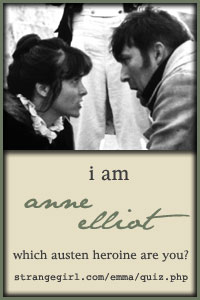
And some Stargazers for my mother on September 4, my father’s birthday. He would have been 89 this year; the fifteen years since he died seems both long and short. So many things I’ve done and been and read and heard, amazed, I would have loved to share with him.
To mark the day, I’ve copied out two sections from the last chapter of his first novel, Rage in the Wind, set in Yellowstone where he worked as a seasonal ranger before and after his time in New York.
In July the slopes of Dead Indian Peak were covered with tiny bright flowers, but now in September they are all gone. It is Indian Summer in Thunder Hole after that first snowfall, but at any time now it can snow to last until spring. Most of the days are clear again, yet the air has no warmth. At the lookout in the mornings you find ice on the ground. During the day the ground thaws to become muddy on top, but at night it freezes once more to leave a crust of frost crystals between stones and sparse bunches of grass. From up there you can see patches of aspen with leaves turned yellow down along the river, and over everything reigns a great peace.
Because it is beautiful even now, Timer thought, I don’t hate the place as much as I should, even though it killed two people I love.
_________________________________________________
The trail swung down the hill in big folds, crossing and recrossing Hoodoo Creek which became larger and deeper as tributaries fed into it. Water flowed home to the sea, and gradually he realized that warming air and continuing life already eased the dark compression within him. Awareness could not be denied, and he watched a porcupine slowly across the trail, heard the sound of geese in the sky. As he moved on, the drainage widened and trees receded on either side until he was once more in grassy meadows through which Hoodoo Creek wound amiably to the lake.
Before he had gone far across the open, a bull elk bugled like a long blast on a rusty trumpet. Another bull answered futher off. They sounded weird and wild on the autumn air, and when he saw the gang of cow elk on a little rise some of them raised camel-like throats to peer at him. He spotted the bull with his spiked rack, standing aside and almost out of sight. And while his head was turned, a flight of ducks took off from the creek, the splash and flap of their wing startling him. He looked around and saw departing teal, but remaining behind, unfrightened by the horses, were eight Canadian honkers, gray and fat and waddling up the opposite bank.
Then he did accept a simple euphoria in himself, a dispassionate sense of well-being that acknowledged these sights in spite of recent agonies. Fall followed summer no matter how abrupt the closure of summer, and he was outdoors in the wide heart of it just as he had been before, inexorably included in eternal space. It contained him as completely as it did the waning white moon in a morning sky, the same moon once full for the McLeods and a wildcat in the night. The same moon, the same space, the same Timer; all essentially unaltered by love or the loss of love. There was no use fighting it.
Thunder and Lightning and Little Lightning rose more than a mile above the valley to hang in the air like a massive mirage, snow-capped and sunlit and wholly triumphant. Perhaps their August-fallen snow was the barren epitome of this country, but he could not hate it. He had never denied its challenge or taken for granted its latent fury. He could understand and even admire the heartless force of such a place. It was, when you came down to it, the wilful violence of men that he disliked, wars and selfish appetites of people like Gloria. You cannot hate the immense and austere simply because in it are natural seeds of violence. You cannot loathe all people because some are loathsome. And although you lose happiness, you do not lose the capacity for happiness. Spring will come again, and possibly then a woman’s voice will call you to her side and hold you there.
Boyd Cochrell, Rage in the Wind (Popular Library, 1953)
________________________________________
And then, to end, this—food for thought from Tom Stoppard.
Rosencrantz: Do you think death could possibly be a boat?
Guildenstern: No, no, no . . . Death is . . . not. Death isn’t. You take my meaning. Death is the ultimate negative. Not-being. You can’t not-be on a boat.
Rosencrantz: I’ve frequently not been on boats.
Tom Stoppard, Rosencrantz & Guildenstern Are Dead (Grove Press, 1967)
image: Wikimedia Commons



















No comments:
Post a Comment